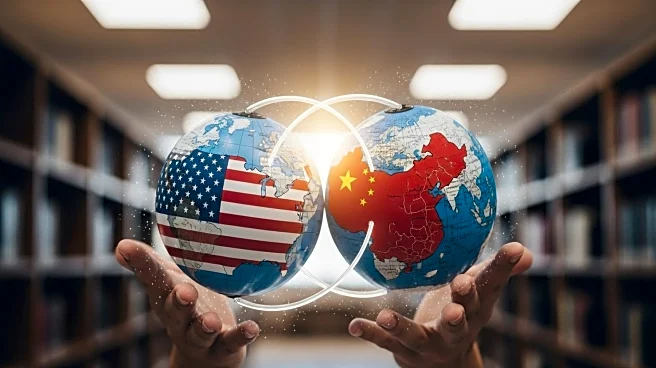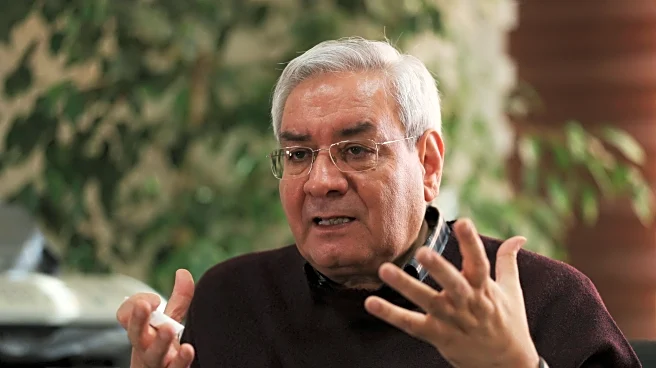What is the story about?
What's Happening?
U.S. lawmakers are expressing concerns over the longstanding practice of open research collaboration between American and Chinese scholars, particularly in fields related to military technology. Senator Tom Cotton has introduced legislation aimed at restricting federally funded research collaborations with Chinese institutions linked to the military. The House Select Committee on the Chinese Communist Party has accused China of exploiting open research to advance its military capabilities, prompting calls for tighter visa policies and an end to certain academic partnerships. Reports indicate that over 500 U.S. universities have collaborated with Chinese military researchers, raising alarms about potential illicit knowledge transfer and national security risks.
Why It's Important?
The debate over open research collaboration with China highlights significant national security concerns for the U.S., as China is perceived as a major challenger to American military dominance. Restricting these collaborations could impact the U.S. academic and research landscape, potentially driving away international talent and affecting innovation. However, proponents argue that safeguarding sensitive information is crucial to maintaining U.S. technological and military advantages. The issue underscores the broader geopolitical tensions between the U.S. and China, as both nations vie for technological supremacy.
What's Next?
The proposed legislation and recommendations from congressional committees may lead to increased scrutiny and restrictions on academic collaborations with China. Universities and research institutions might face pressure to implement stricter security measures to protect sensitive research. The ongoing debate could also influence future policies on international academic partnerships and visa regulations for foreign scholars. Stakeholders in academia and industry will likely continue to advocate for a balanced approach that protects national interests while fostering innovation.
Beyond the Headlines
The push for restrictions on U.S.-China academic collaborations raises ethical and cultural questions about the role of open research in global scientific advancement. While protecting national security is paramount, the potential for stifling academic freedom and international cooperation poses challenges. The situation reflects broader cultural shifts in how nations perceive and engage with each other in the realm of science and technology.















